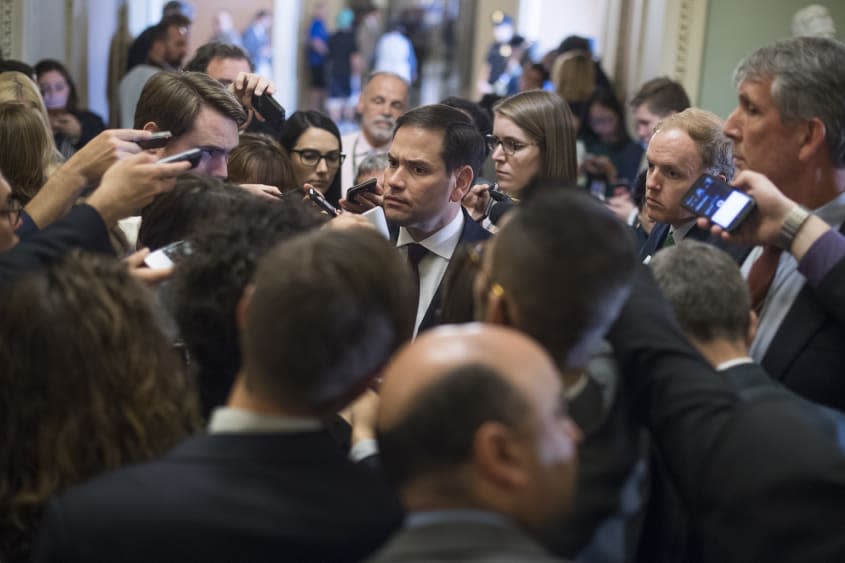GOP leadership fight threatens to spill into the Senate

- Oops!Something went wrong.Please try again later.
With Republicans still grappling with the party's lackluster performance in what was expected to be a "red wave" midterm election, questions about who will now lead the GOP have begun growing louder. Lawmakers are jockeying for influence and position ahead of the coming legislative term — and with an eye on 2024 as well. That dynamic, which has already complicated the formerly straightforward bid by House Minority Leader Kevin McCarthy (R-Calif.) to become Speaker of the House under a pending Republican majority, now seems ready to spill into the Senate as well.
On Friday, Sen. Marco Rubio (R-Fla.) declared that "[t]he Senate GOP leadership vote next week should be postponed," adding that Republicans "need to make sure that those who want to lead us are genuinely committed to fighting for the priorities & values of the working Americans (of every background) who gave us big wins in states like #Florida."
Rubio's call to hold off voting on who will lead the Republican delegation in what increasingly seems will be a narrow GOP minority was echoed by his colleague Josh Hawley (R-Mo.) who argued it was premature to hold a leadership vote with the Georgia Senate race headed for a runoff.
The pair were joined by Sens. Ron Johnson (R-Wis.), Mike Lee (R-Utah), and Rick Scott (R-Fla.) who have reportedly begun whipping their colleagues against holding a leadership vote next week.
Hawley's electoral caution notwithstanding, the objections to the scheduled vote to determine party leadership are indicative of a broader schism beginning to take shape across the GOP as a whole; middling midterm results have called into question whether former President Donald Trump's influence is — or should be — waning within the party, particularly in the face of Florida Gov. Ron DeSantis' ascendancy as an electoral winner. Rubio's invocation of Florida's unambiguously positive election night results for Republicans is a not-so-subtle reminder of this dynamic.
While the situation in the Senate has yet to reach the heightened pitch as a similar conflict in the House, it does suggest that longtime GOP Senate leader Mitch McConnell's (R-Ky.) ability to keep the caucus in line may be complicated by the shifting loci of conservative power outside his immediate control. Trump, long an antagonist toward McConnell's leadership, has continued to agitate his base against establishment Republican figures — meaning calls to delay the GOP leadership vote may offer lawmakers a chance to see which way the conservative winds are blowing, lest they cast a ballot that could find them afoul of whichever wing of the party ends up more influential.
You may also like
7 brutally funny cartoons about the 'red wave' that wasn't
Should you even bother throwing plastic in the recycling bin?
U.S. extending COVID public health emergency through spring 2023, per official

